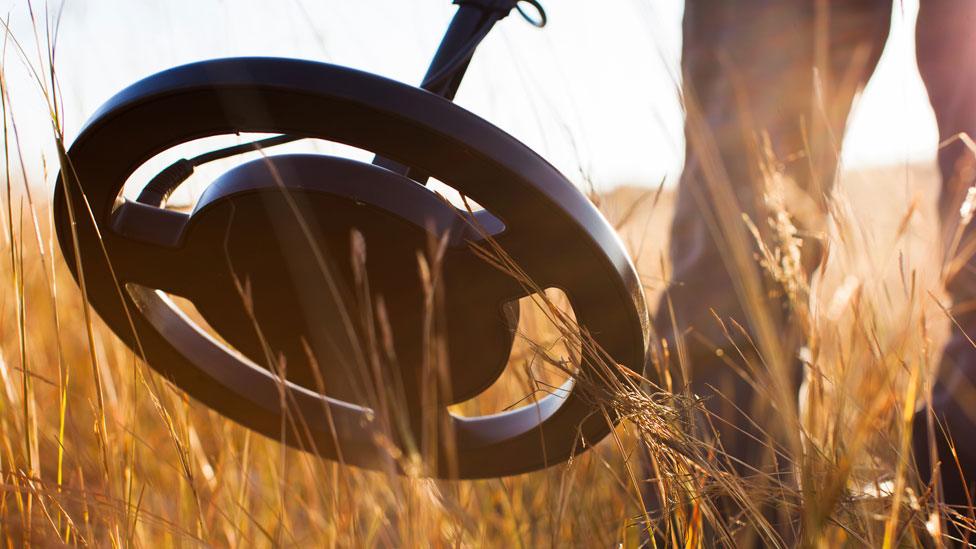'Old bucket' turns out to be 'excessively rare' Anglo-Saxon bowl
- Published
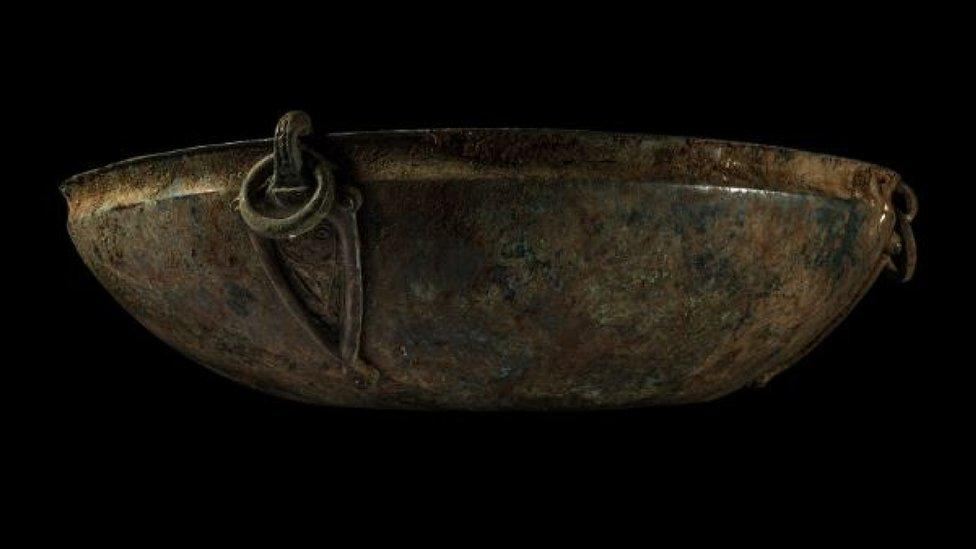
Chris Ulliott discovered the Anglo-Saxon bowl in a North Yorkshire field
A metal detectorist has spoken of his excitement after unearthing a rare Anglo-Saxon bowl he had initially mistaken for a "rusty old bucket".
Chris Ulliott found the relic while taking part in an organised dig in Ryedale, North Yorkshire, in February.
The bowl, described as "almost complete," is expected to fetch between £20,000 and £30,000 at auction on Tuesday.
Mr Ulliott, 36, from North Ferriby, said: "It's pretty special."
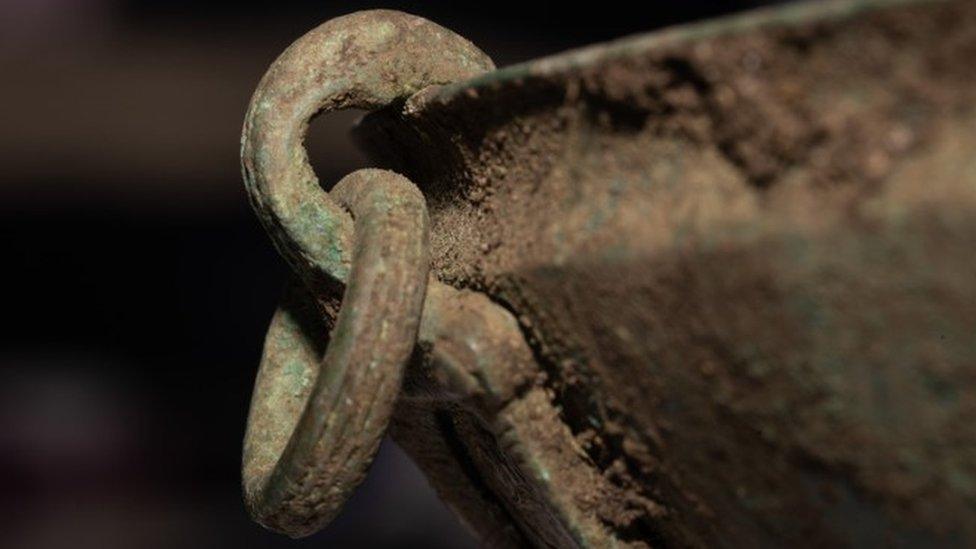
Usually copper-alloy from Anglo-Saxon times fail to survive, according to auction boss Brett Hammond
According to Timeline Auctions' website, the relic is "an excessively rare, almost complete copper-alloy hanging bowl".
Mr Ulliott and the landowner, who intend to split the profits after auction fees, have set a reserve of £16,200.
Describing the moment of discovery, Mr Ulliott said: "I'd gone down the length of this field without finding anything when suddenly the detector picked something up.
"Whatever it was, it was pretty deep. I dug down. A lot of people would have given up, but since I hadn't found anything else I thought I'd stick with it. I wanted to find out what it was.
"I dug down about 2ft (0.6m) and saw the top rim of what I thought at first was a rusty old bucket. I could see these little loops on it that still moved. I thought if they're still moving, this object is maybe, at best, Victorian."
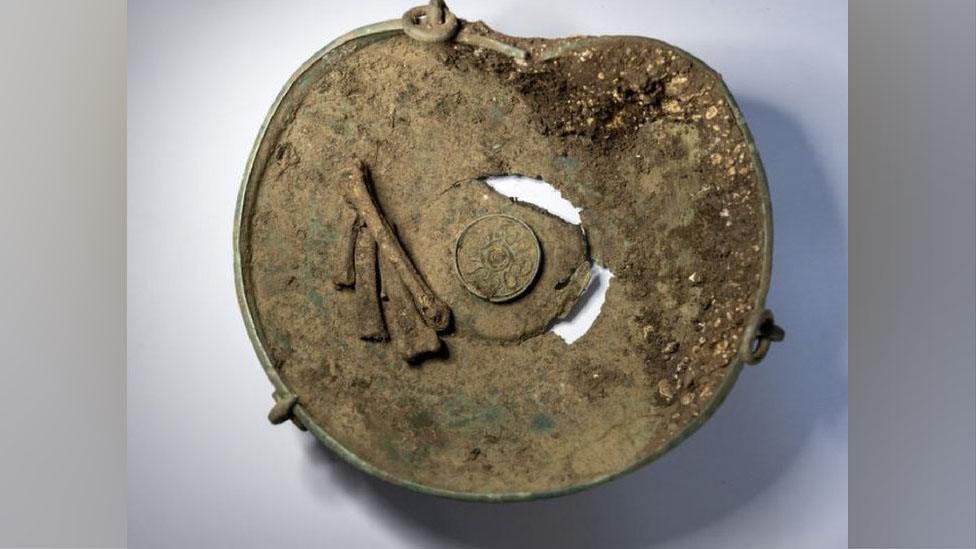
The Anglo Saxon hanging bowl is expected is expected to fetch up to £30,000 at auction on Tuesday
Mr Ulliott's furious digging piqued the interest of other hobbyists who quickly gathered around him, he recalled.
"There were people there who were a lot more experienced than me," he said. "They told me they thought it looked Anglo-Saxon."
Checks with an archaeologist confirmed their suspicions.
Mr Ulliott said the find was "really exciting", adding he had previously only found "the odd Roman and medieval coin".
Brett Hammond, managing director of Essex-based Timeline Auctions, said the find was all the more rare as copper alloys do not tend stand the test of time.
"This is exceptional," he said. "Either soil conditions were perfect or the workmanship was of a very high quality indeed."
The Anglo-Saxon age in Britain was from around AD410 to 1066.
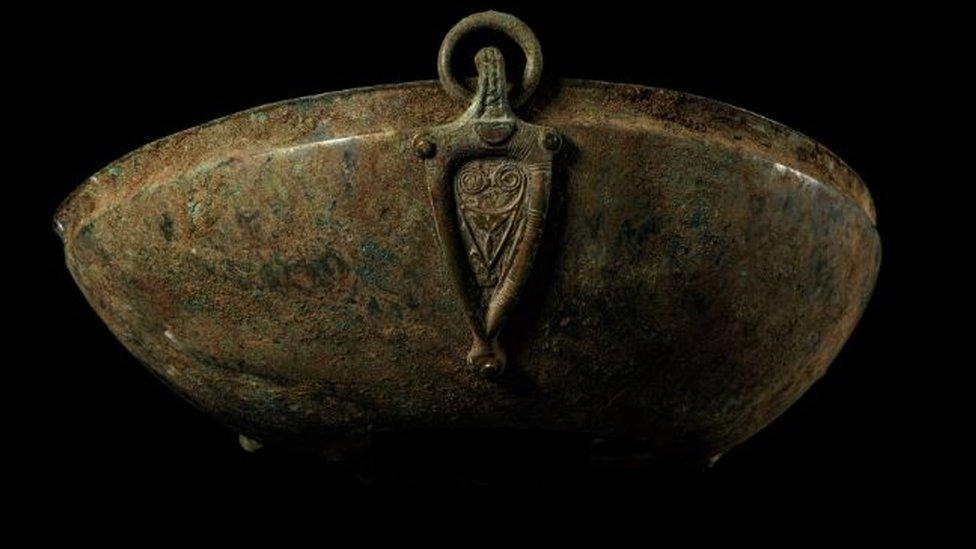
Mr Ulliott said he has previously found Roman coins using a metal detector
Meanwhile, Mr Ulliott said he had only taken up metal detecting in 2020 as a way of making his daily exercise during the pandemic more interesting.
"I contacted my local police and they said I was fine to take my metal detector with me on local walks during lockdown," he said. "I'd go to Hessle or North Ferriby foreshore, on the banks of the Humber."
Mr Ulliott said he had since graduated from a £200 entry level metal detector to a top-of-the-range instrument, costing about £2,000.
"Metal detecting is definitely getting more popular," he said, adding his children Macy, five, and Harvey, three, occasionally joins him on treasure-hunting trips.
Mr Ulliott, a professional photographer, intends to use his share of the proceeds from the sale to buy a new camera "and treat the family," he said.

Follow BBC East Yorkshire and Lincolnshire on Facebook, external, Twitter, external, and Instagram, external. Send your story ideas to yorkslincs.news@bbc.co.uk, external.
- Published11 May 2023
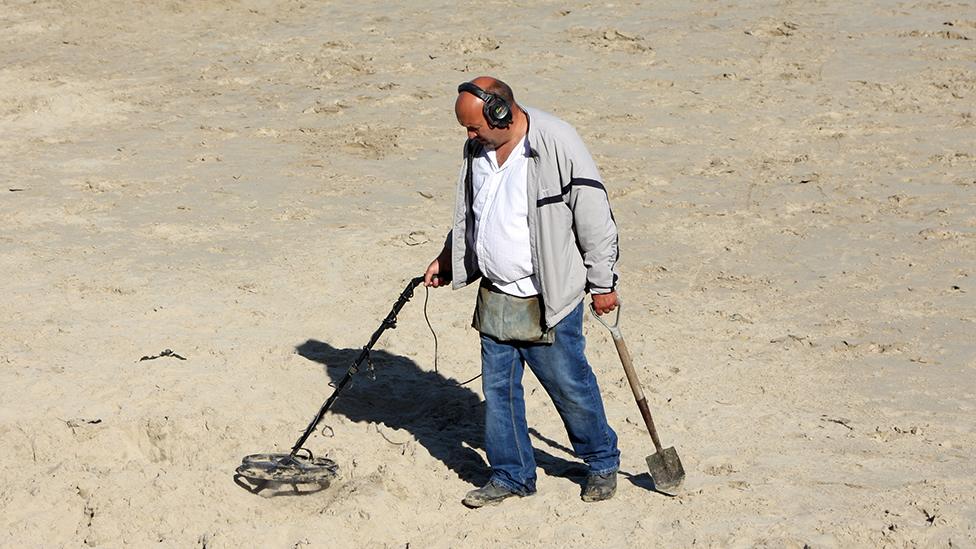
- Published16 August 2023
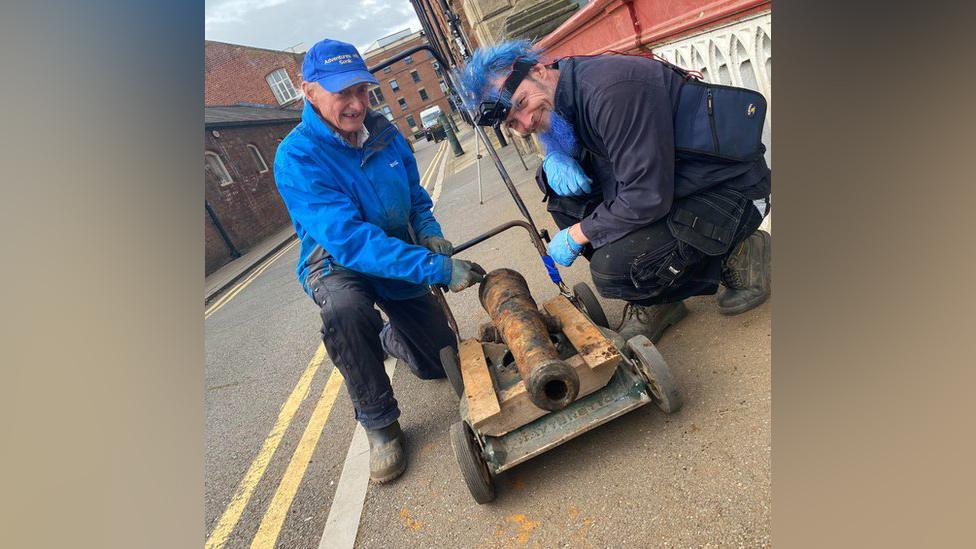
- Published1 July 2023

- Published30 April 2023
